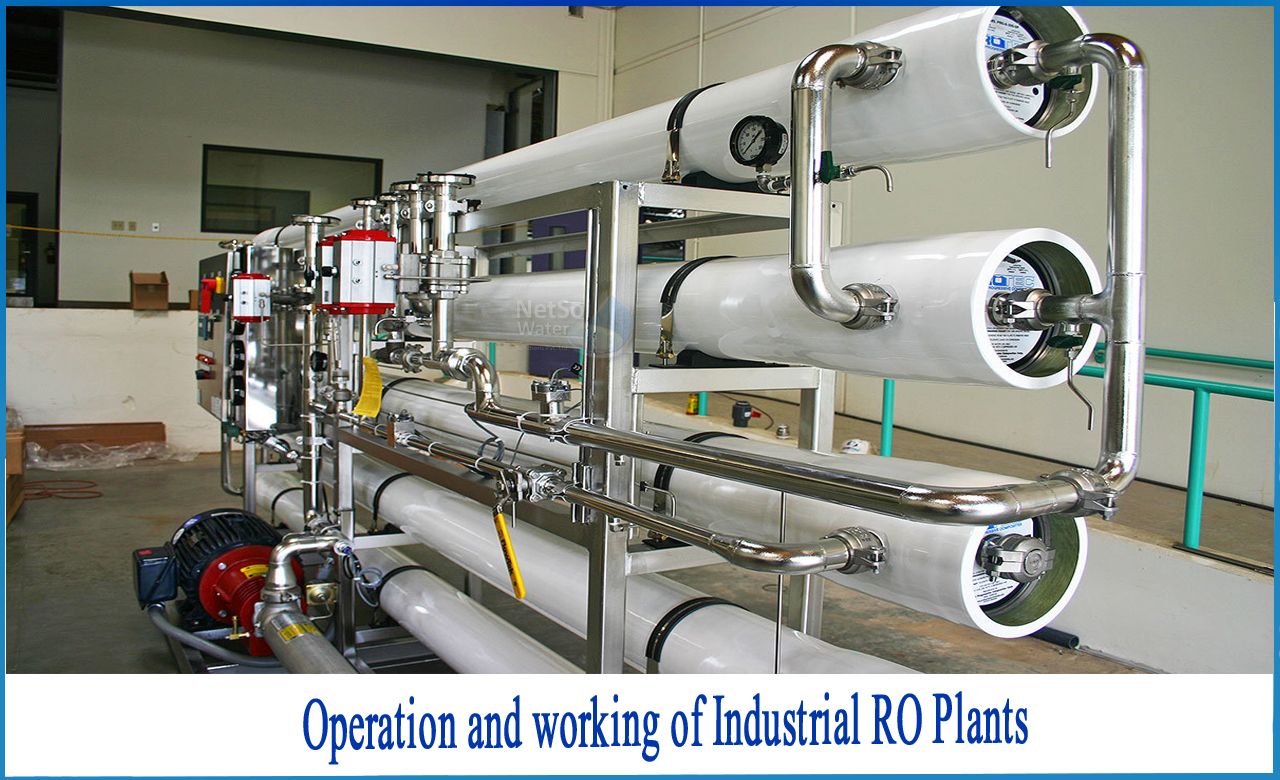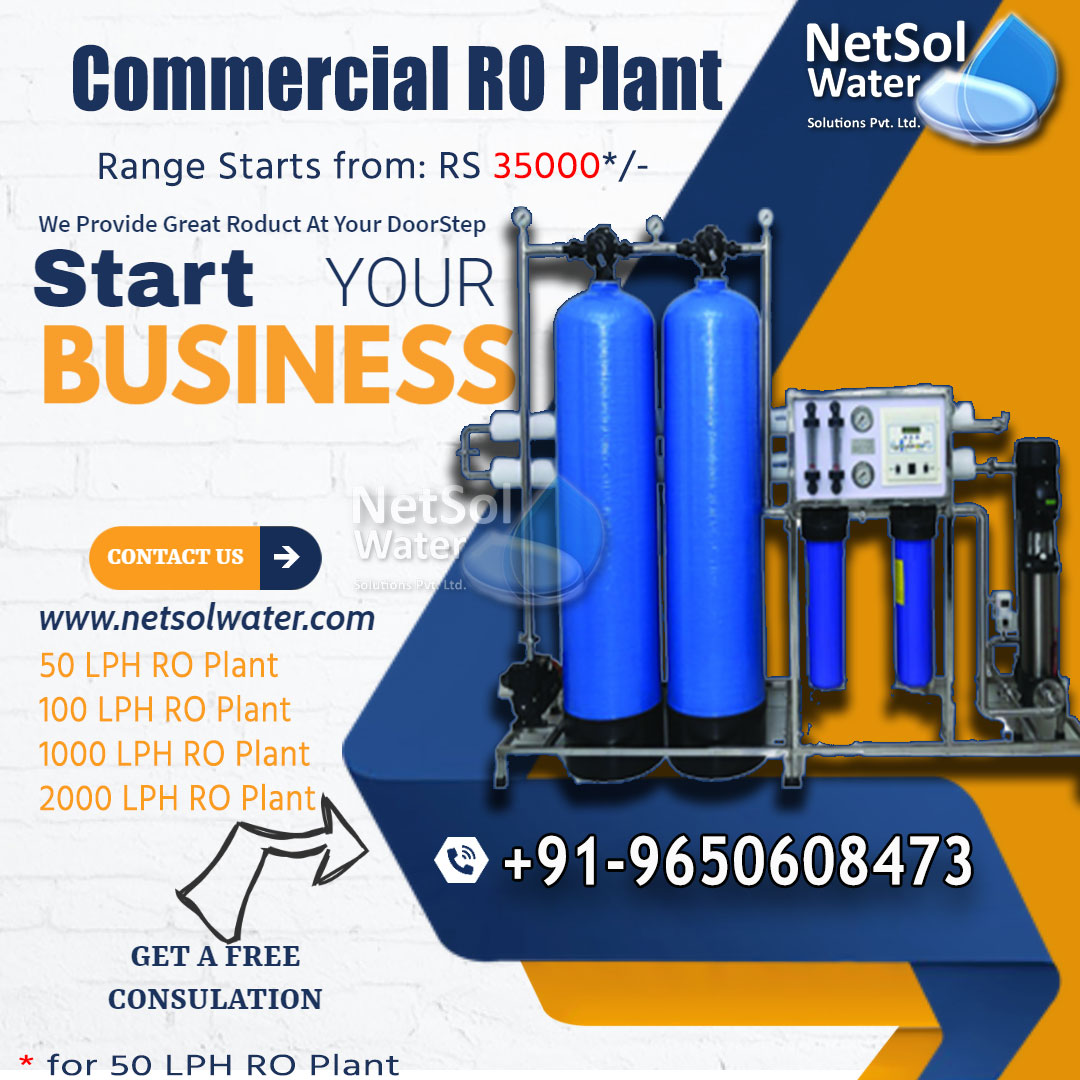Industrial Reverse Osmosis System
One of the most cost-effective methods of treating boiler feed water, cooling tower make-up water, and industrial process water is reverse osmosis (RO). It can also be used to generate demineralized water, eliminating the need to handle and dispose of dangerous chemicals.
Several elements must be considered during the design phase for an industrial RO system to perform at peak efficiency. These systems remove up to 99.9% of salts and contaminants from various impure feed water sources such as municipal, brackish, and surface water. Contaminants with molecular weights greater than 150-250 Dalton are blocked by these systems.
What is the operation of an industrial reverse osmosis Plants?
This system comes with 3 stages, 4 stages, and 5 stages system.
1: A sediment filter, a carbon filter, and a semi-permeable membrane are all part of a three-stage reverse osmosis system.
2: A four-stage method includes an additional membrane to filter out particles that the first membranes may have missed.
3: Water in a five-stage system goes through the same sediment filter, carbon filter, and a semi-permeable membrane. It also includes post-filtration, which involves passing the water through an extra carbon filter to remove any remaining contaminants.
Each kind of system comprises one or more of the following filters:
1: Sediment Filter: It minimizes tiny particles in water such as dirt, dust, and rust.
2: Carbon Filter: This filter decreases volatile organic compounds (VOCs), chlorine, and other impurities that give water a bad taste or odour.
3: Semi-permeable membrane: Removes up to 98% of total dissolved solids (TDS).
Stages of Reverse Osmosis
Below are t?he basic steps of filtration and storage
1: Pre-filtration: There are two types of prefilters in reverse osmosis systems that filter out bigger particles such as silt and chlorine. The water is initially passed through a sediment pre-filter, which eliminates particles such as dust, dirt, and rust. The water next passes through an activated carbon pre-filter, which binds to and eliminates contaminants such as chlorine and volatile organic compounds (VOCs).
2: Reverse osmosis: The major event of reverse osmosis occurs after pre-filtration. At this point, the pump forces the water across a semi-permeable membrane, which retains tiny, more difficult-to-eliminate dissolved solid particles. This stage may frequently eliminate the vast majority of the dissolved particulates in the water.
3: Drainage: After the water has passed through the semi-permeable membrane, the eliminated pollutants are flushed down the drain. This procedure is critical because impurities that accumulate on the membrane might reduce its efficiency. Draining the accumulated impurities maintains the RO system's efficiency.
4: Storage: The final stage is to store the treated water until it is used. The storage container is frequently a pressure tank big enough to hold the treated water without generating waste. The cleansed water may additionally be sent through an extra carbon filter to eliminate any remaining contaminants.
Industrial RO Plant Types
The following are some of the Industrial RO Plants to choose from based on your needs:
100 LPH RO Plant
This is suitable for hospitals, nursing homes, small colleges and workplaces, institutions, restaurants, and so on. It is basically a type of a commercial RO Plant. It features one air mass switch and a water output capacity of 100 litres per hour. Its energy-efficient design consumes less electricity and requires little maintenance.
250 LPH RO Plant
This is suitable for small to medium-sized businesses such as food and beverage, textile, chemical, and so on. It may even be utilized by large hostels, restaurants, universities, and institutions where there is a significant need for water.
500 LPH RO Plant
They are factory-made in accordance with industry standards, utilizing innovative technology and the best raw materials, and are perfect for drinking water, manufacturing, and cleaning in small to medium-sized businesses, factories, hospitals, and enterprises.
There are also other types of Industrial RO Plants with varying capacities available with us.
What do we have to offer?
Netsol Water is a renowned producer of water and wastewater treatment plants. Based on client feedback and job quality, we are the most demanding organization in the water industry. We have a reputation for being the top commercial RO plant manufacturer, industrial RO plant manufacturer, sewage treatment plant manufacturer, effluent treatment plant manufacturer, and much more.
Our skilled team of application, mechanical, and chemical engineer’s custom designs Industrial Reverse Osmosis systems precisely for your water and wastewater treatment needs. We construct the RO systems with only high-quality components that will guarantee long-term reliability. They arrive at your location hydrostatically tested and ready to produce water, together with all necessary documentation and operator training. We also provide the necessary pre-treatment equipment’s and chemistry to ensure that your RO membranes operate optimally and last a long time.




